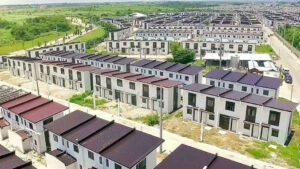APPROVED building permits rose 3.4% in March, arresting a run of three straight months of declines, the Philippine Statistics Authority (PSA) reported on Tuesday.
The March reading was a turnaround from the 10.6% decline a year earlier and the revised 0.7% drop in February.
The 3.4% outcome was the strongest since the 10.7% reading posted in November.
Citing preliminary data, the PSA said building projects covered by the permits numbered 14,973 in March, against 14,477 a year earlier.
Construction projects represented by the permits were valued at P47.50 billion, up 20.9% from a year earlier.
Permits for residential projects, which accounted for 63% of the total, declined 0.2% to 9,426 in March.
These projects were valued at P17.88 billion, against the P17.37 billion a year earlier.
Single homes made up 87.8% of the residential category with approved permits rising 1.3% to 8,272.
Applications for apartment buildings contracted 11.7% to 1,027 while applications for duplex or quadruplex homes were up by 3.9% at 106.
In March, nonresidential projects tallied 3,329 approvals, increasing 2.1% from a year earlier.
Nonresidential permits were valued at P22.48 billion, up 25.7%.
Approved commercial construction permits numbered 2,321, up 0.5%.
Agricultural projects totaled 98 approvals, up 3.2%, while other nonresidential works accounted for 94 building permit approvals, up 19%.
Industrial permits rose 26% to 305, while institutional projects fell 4.8% to 511 approvals.
Permits for additions climbed 35.9% to 587 in March, while alteration and repair permits totaled 1,201, up 17.6%.
Calabarzon (Cavite, Laguna, Batangas, Rizal, and Quezon) accounted 25.4% of the total approved construction projects with 3,796 permits, followed by Central Luzon (1,752) and the Ilocos Region (1,204).
Construction projects in the National Capital Region were valued at P11.46 billion, followed by Calabarzon (P9.86 billion), and Central Luzon (P6.18 billion).
John Paolo R. Rivera, senior research fellow at the Philippine Institute of Development Studies, said via Viber that the rebound in approved building permits for March likely reflects both seasonal and cyclical factors.
“March is typically the start of peak construction activity as the dry season sets in, enabling builders and developers to accelerate or resume projects that may have been delayed in the previous months due to weather-related constraints,” he said.
Mr. Rivera added that “the uptick may also be a sign of renewed confidence in the property and construction sectors as inflation has started to ease and interest rate hikes have paused, giving developers a bit more clarity in planning capital expenditures.” — John Phoebus G. Villanueva

